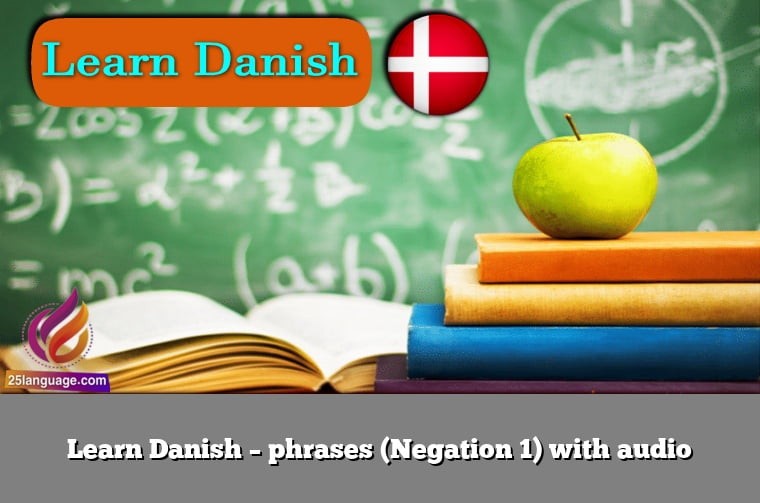Past tense phrases in Danish with audio
Phrases used in the (Past tense 1)

Learning past tense phrases in Danish is important for several reasons, including:
- Effective communication: The ability to express past events and actions accurately and fluently is essential for effective communication in Danish. By learning past tense phrases, you will be able to convey your thoughts and ideas more clearly and precisely.
- Daily conversations: Danish speakers often talk about past events and experiences in their daily conversations.
| Danish | English |
|---|---|
| Jeg talte med ham i går | I talked to him yesterday |
| [responsivevoice voice="Danish Female" rate="0.8" buttontext="►"]Han spiste morgenmad kl. 8 | He ate breakfast at 8 |
| Hun gik i seng kl. 10 | She went to bed at 10 |
| Vi så en god film i går aftes | We watched a good movie last night |
| De besøgte deres bedsteforældre i weekenden | They visited their grandparents over the weekend |
| Du læste bogen i går | You read the book yesterday |
| Jeg besøgte min ven i København i sidste uge | I visited my friend in Copenhagen last week |
| Han fik en god karakter i matematik | He got a good grade in math |
| Hun købte en ny cykel i går | She bought a new bike yesterday |
| Vi spiste aftensmad på restauranten i går | We ate dinner at the restaurant yesterday |
| De rejste til Paris i sidste måned | They traveled to Paris last month |
| Du så godt ud i går aftes | You looked good last night |
| Jeg modtog en gave fra min ven | I received a gift from my friend |
| Han spillede fodbold med sine venner i parken | He played soccer with his friends in the park |
| Hun læste avisen på caféen | She read the newspaper at the café |
| Vi var på stranden hele dagen i går | We were at the beach all day yesterday |
| De besluttede sig for at tage på ferie i Spanien | They decided to go on vacation in Spain |
| Du skrev en e-mail til din chef i går | You wrote an email to your boss yesterday |
| Jeg ringede til min mor i går aftes | I called my mom last night |
| Han besøgte sin bror i weekenden | He visited his brother over the weekend |


























